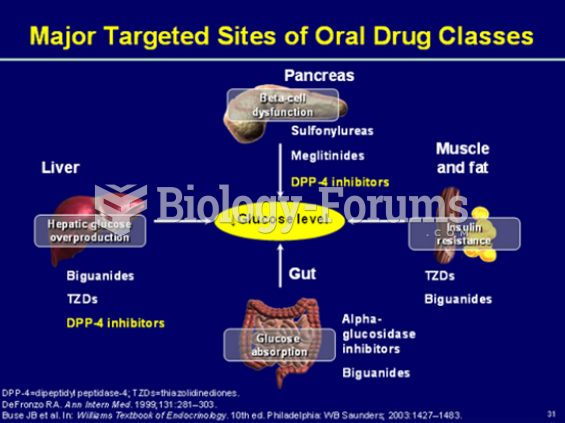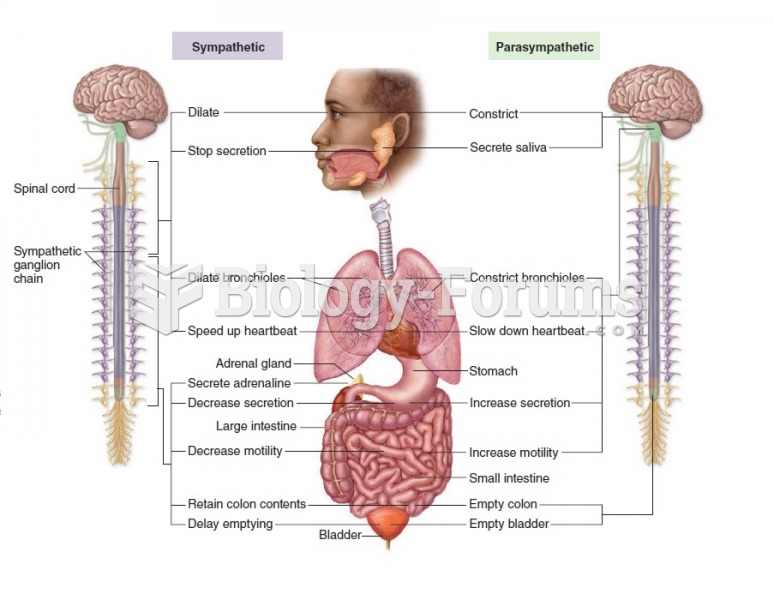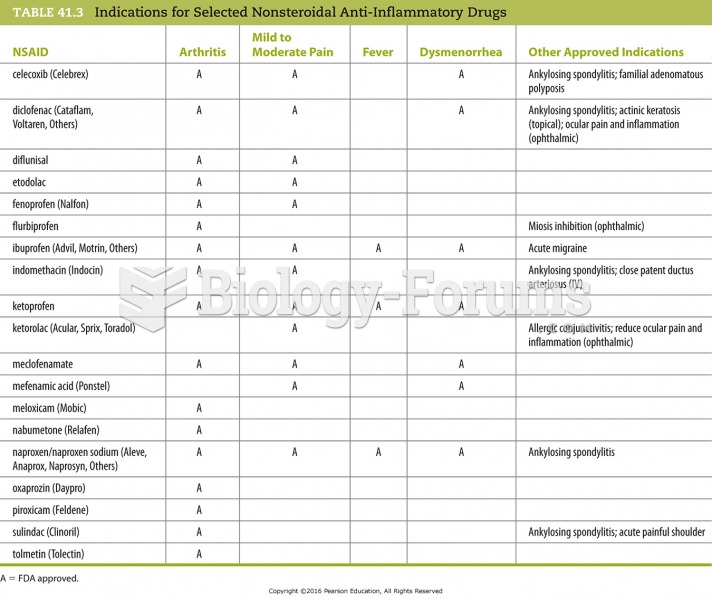This topic contains a solution. Click here to go to the answer
|
|
|
Did you know?
About 3.2 billion people, nearly half the world population, are at risk for malaria. In 2015, there are about 214 million malaria cases and an estimated 438,000 malaria deaths.
Did you know?
In 1864, the first barbiturate (barbituric acid) was synthesized.
Did you know?
If you could remove all of your skin, it would weigh up to 5 pounds.
Did you know?
The first successful kidney transplant was performed in 1954 and occurred in Boston. A kidney from an identical twin was transplanted into his dying brother's body and was not rejected because it did not appear foreign to his body.
Did you know?
The horizontal fraction bar was introduced by the Arabs.







